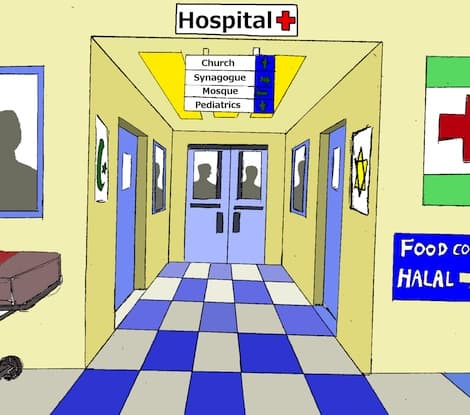
TIMOTHY LAW/THE VARSITY
The Varsity: Can you tell me about the history of MMAC?
Dr. Raza M. Naqvi: MMAC was formed in 2007 to help represent and help address the unique needs of Muslims across the country. We aim to provide unique professional, educational, and social services to the Canadian public. Over the past seven years, we have grown and developed with representatives from nearly every Canadian medical school and a large network of practicing physicians.
TV: What is the importance of MMAC’s work? How do the projects of the MMAC specifically address the needs of the Muslim population in Canada?
RN: MMAC’s work aims to address some of the unique social and medical needs of Muslims. We aim to do this by providing services to those of all faiths who are in need. We have started a free medical clinic aimed to address the healthcare needs of refugees or other uninsured populations who have trouble seeking care. We have also developed a mentorship and networking program for young students and trainees who are exploring different careers and looking for advice.
We aim to foster an interest in medicine among those who are inquisitive by providing resources and opportunities for individuals looking to enter the medical field. Over the years, we have supported various community projects that aim to further the education and opportunities for underprivileged students of all faiths.
TV: How does faith guide the work of MMAC?
RN: Our core principles go back to our Islamic values as Canadian Muslims. We strive to provide services where needed and aim to contribute to a healthy and just society as these are the principles taught by Islam. While endeavouring to address unique needs of Muslims, we also hope to provide care to anyone in need as this is a fundamental principle of Islam. We aim to better our community, society, and humanity through our efforts.
TV: What challenges currently face Muslim patients and doctors in medicine?
RN: There are several issues that we are working to explore and assist in… There are growing challenges in understanding perspectives in unique ethical situations such as end-of-life care.
TV: What is the MMAC’s greatest success, and where do you hope to go in the future?
RN: We have had many milestones over the past several years. One of the most significant in the recent past was our part in creating and supporting the Welcome Medical Clinic, a free medical clinic for patients of all backgrounds who lack access to care for various reasons. This weekly clinic continues to grow and is run on a volunteer basis with physicians, assistants, and administrators all contributing to its success.
In the future, we hope to continue to expand on our existing services and continue to address the needs of Muslim patients and physicians for years to come.

